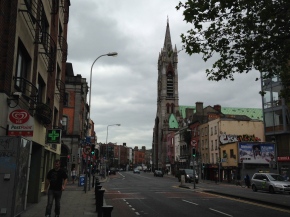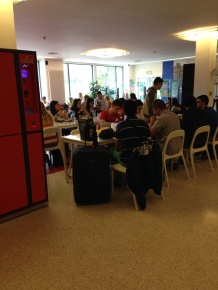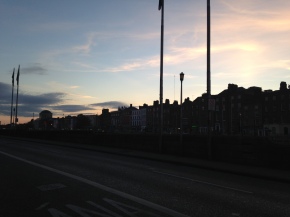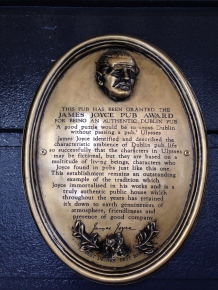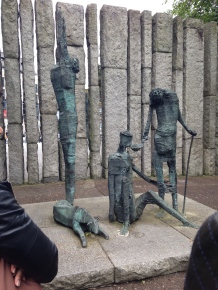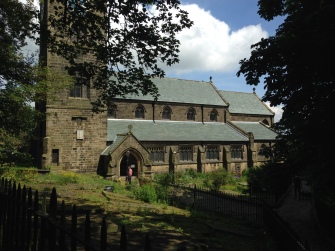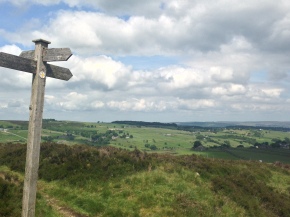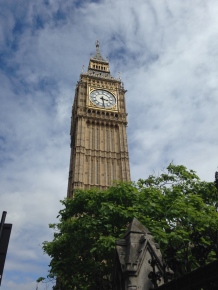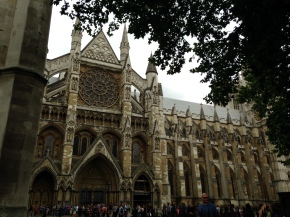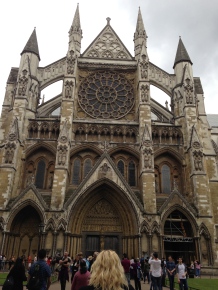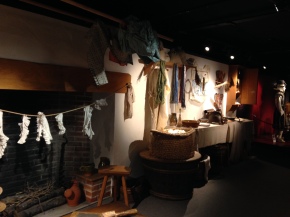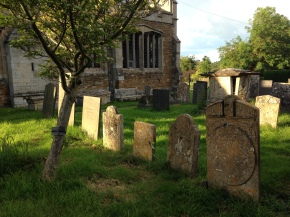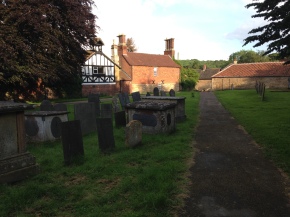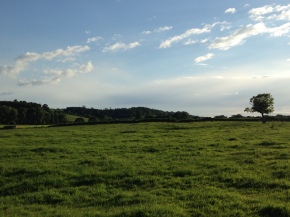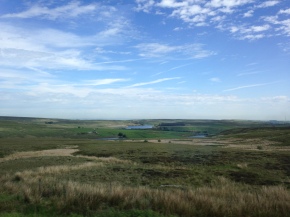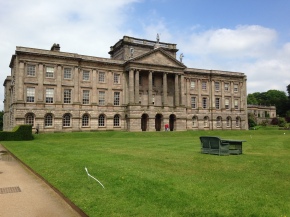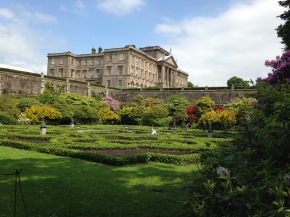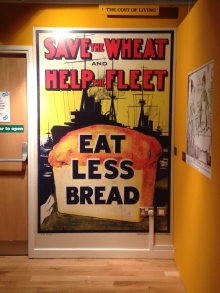A lot can change in a month. What was once foreign slowly can become familiar, and what was familiar can become foreign. I’d never thought there’d be a day when endless fields of corn would throw me off, but after living in England for a month, I became accustomed to its rolling green hills spotted with sheep, wheat, and barley. I’ve been home for about a week, and I’m still not used to seeing the tall cornstalks surrounding my house when I walk outside. But even though I’m still on a “trip high” and my mind and heart are still somewhat in England, I’ll admit seeing my family and friends again has been great. I just hope they don’t get sick of me blabbing about England all the time. It seems to be all I can think of or talk about.
I apologize for my tardiness in filling everyone in about my last days there. Our final weekend in Europe was probably our busiest and most eventful. I’ll try my best to fill you in on what all we did. Ugh, looking back at these pictures is already making me emotional! Here we go…
As I mentioned we would in my last post, not long after our trip to Ireland, we went to France as a class. Before crossing the English Channel into France, we spent a day and night in Dover, England. Dover is a beautiful port town, famous for its iconic White Cliffs, which I’ll talk about a little later. I was immediately drawn to the town, not only because of its beautiful landscape, but also because of its historical importance. I love history and even considered minoring in it for a while. I am particularly interested in anything related to the World Wars, and Dover has been an extremely important strategic point in many wars, especially World War Two and the Dunkirk Evacuation.


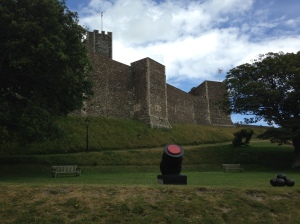
Upon arriving, our bus driver dropped us off right next to Dover Castle, which was built in medieval times. Because of its defensive significance throughout England’s history—from medieval times to the days of Napoleon to World War Two—it has been described as the “Key to England.” Entrenched into the cliffs with grey stonewalls that have stood the test of time, it was an impressive and imposing sight. When we first arrived, it was cloudy and a little chilly, which really added to the atmosphere of the place, but it eventually cleared up, allowing for a beautiful, sunny day.



After exploring the area a bit, we went on a tour of the tunnels underneath the castle. The tunnels, which go on for miles and miles, have been around since at least Napoleon’s time, and were used as an underground hospital and Admiral Bertram Ramsay’s headquarters as he directed Operation Dynamo (the Evacuation of Dunkirk) during World War Two. The tunnels were fascinating and I learned a lot, but unfortunately we weren’t allowed to take pictures inside.
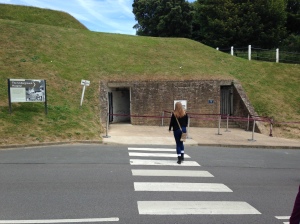


When we exited the tunnels and stood on top of the hill, we could see for miles. If you looked hard enough, you could even see France across the blue-green Channel. Being able to see France across the water impacted me in a very emotional way, especially after reading about Robbie being trapped on the beaches of Dunkirk in Atonement and all we learned in our tunnel tour about the Evacuation. I guess I should probably explain what the Evacuation of Dunkirk even was. In late May of 1940, Hitler and his German troops had pushed the Allied troops back across France until hundreds of thousands of British and French troops were trapped on the beaches of Dunkirk. If the Germans were able to destroy the troops who were trapped, the war would’ve basically been over and the Nazis the victors. Just as I could see France from where I was on the Cliffs, the troops could see England from where they were stranded in France. I can’t even imagine the torture for a stranded English soldier, being so close to home that you can see it, but yet being far enough away that you are unable to make it across safely.



Admiral Bertram Ramsay, who I mentioned earlier, was the mastermind of Operation Dynamo—the mission to rescue all of the men on the beaches. From his headquarters in the tunnels beneath Dover Castle, he along with his small staff directed this seemingly monumental task. Using 900 naval and civilian ships under the protection of the RAF, the mission was a success and 338,226 people were rescued. Winston Churchill—one of my favorite historical figures of all time—called the Evacuation a “miracle of deliverance” and ended his speech with this defiant message to Hitler that gives me chills every time I read it:
We shall defend our island whatever the cost may be. We shall fight on the beaches, we shall fight on the landing grounds, we shall fight in the fields and in the streets, we shall fight in the hills. We shall never surrender.
Anyway, sorry, where was I? Anytime I start talking about anything related to the World Wars, rambling is inevitable. After our tunnel tour and looking out over the Channel, we explored the medieval tunnels for a bit before heading back to the bus and checking into our hotel. The hotel was right along the water and the big, nice rooms were a wonderful change from the cramped hostels we were used to staying in when we travelled. We walked as a group to a seafood restaurant on the beach after checking in. Do I even need to say what I ordered? We went down to the water when we’d finished eating. It was an extremely rocky beach, which wasn’t too fun to walk on with flip-flops, but it was still lovely all the same.



The next morning, we got up early, got on our bus, and boarded a ferry for an hour-long ride across the Channel. We stood on the back deck for most of the ride, and it was one of my favorite little moments of the entire trip. The white of the Cliffs against the blue-green of the water and the deep blue of the sky was absolutely gorgeous. Add to that a cool, peaceful breeze and I was in heaven.


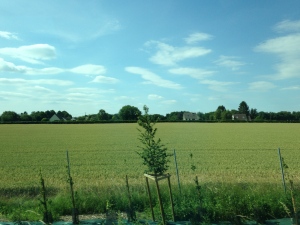
We made port in Calais, and from there, had a couple hour bus ride to Dunkirk. On the way, I was able to take in the French countryside. As a whole, it was fairly similar to England’s—very green with rolling hills and lots of farmland. But there were some big distinctions between the two. Unlike in England, where pretty much all of the houses are made of red brick, French houses are made of varying materials, but almost all have very triangular roofs. Also, the French have their steering wheels on the left side and drive on the right side of the road like we do here in the United States. Oh, speaking of driving, our bus driver got pulled over by the French police for not wearing a seatbelt. At first it was kind of scary, but the policeman was nice, even though he barely spoke any English, and it became something we laughed about for the rest of the trip.
When we finally arrived at Dunkirk, we walked down to the beach. There was a memorial on the beach that we spent some time looking at. While we were looking, a couple who were taking their wedding pictures on the beach noticed we were Americans and their photographer took a picture of us with them. It was fun and embarrassing at the same time. But they were really cute.

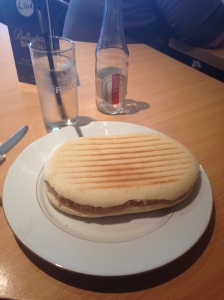

After that, we went to lunch at a little diner on the beach. I had a Panini au poulet—a grilled chicken, tomato, and cheese sandwich. The food was delicious and the waitresses who worked their were extremely friendly and accommodating, even though they spoke little to no English, we knew even less French, and we butchered the French we tried to speak. At one point, we were trying to figure out what was on a certain type of sandwich. Not knowing what the correct word would be, our waitress snorted like a pig to let us know it was pork. When we finished eating, we walked down to the beach, which had much softer sand than Dover’s beach, took off our shoes, and walked around in the cool water. We couldn’t stay long, though—we had a bus to catch to Paris.


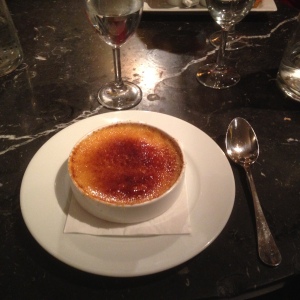
When we first arrived in Paris, I have to admit I wasn’t very impressed. The part of town we were staying in wasn’t the nicest and our hostel itself wasn’t too extraordinary, although slightly nicer than the one in Dublin. But, after we got settled in our hostel rooms and changed to go explore the city, we got to see the “real” Paris, the beautiful Paris, and I fell in love. We rode the Paris underground metro to the area near the Eiffel Tower and ate dinner at this elegant café called La Terrasse. It was one of the more pricey places we ate on the trip, but, hey, we were in Paris! It seemed only right to splurge a little. I had a Croque-Monsieur—a grilled ham and cheese sandwich that is dipped into a beaten egg then sautéed in butter. Yum. I quickly decided that French cuisine is my favorite, since it’s largely comprised of bread and cheese. I probably would’ve came back as big as a whale if I’d have spent too much time in France. We ended our dinner with Crème brûlée—an egg custard with melted sugar on top—for dessert. Can you say “heaven in your mouth?”
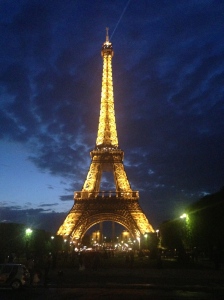


Stomachs full, we walked the streets of Paris as the sun set, and headed towards the park and the Eiffel Tower. A childish wonder filled all of us when we saw it for the first time—it was a lot bigger and much more beautiful than I thought it would be. A group of French teenagers laughed at us and our obvious foreignness when we oohed and aahed as we looked up at it. We basically ran through the rest of the park to get close to it and spent several minutes taking pictures when we got to the place where the trees cleared and we were able to see the whole thing at once. Occasionally, I think it was every hour on the hour, the tower’s blue lights would sparkle, which was an amazing sight. We made it to the base of the tower just in time to buy tickets to go up in it. I’m so glad we made it, because seeing Paris from the Eiffel Tower at night is something I’ll never forget and pictures will never do it justice. I guess I’ll just have to go to Paris again to relive the memory.


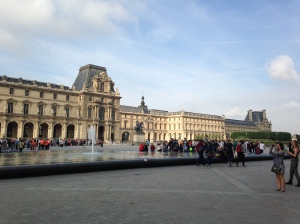
Our next day in Paris was a busy one, since we had to head back to Dover around two that afternoon. We spent the morning in The Louvre—one of the world’s largest museums. It was huge. We could’ve spent all day there and still have not seen everything. It is home to the work of some of the greatest artists in history. I saw the Mona Lisa and the Venus de Milo. I still can’t wrap my mind around the fact that I had the privilege to see such iconic pieces of art. I would go back in a heartbeat. After lunch, we used the little bit of time we had left in Paris walking the pretty streets and spending a ridiculous amount of money at amazing bookstores that I practically had to be dragged away from. We spent the rest of the day travelling back across the French countryside and over the Channel back to Dover.



If you’re still reading this novel of a post, you deserve a gold star and a cookie—I told you we did a lot. But, if you are still here, don’t leave just yet, because I’m about to talk about one of my favorite parts of the entire trip—the White Cliffs of Dover. Just like our first day in Dover, it began chilly and cloudy, but eventually it turned out to be a gorgeous day. We walked as a group at first, and then broke off into smaller groups we walked on. Just like on the moors, I was captured in every way by the landscape. The grandeur of the cliffs made me feel small, but this feeling didn’t make me uncomfortable. It was just another reminder of the awesomeness of our God, and how wonderful it is that He created such beautiful things in nature for us to enjoy.



Some of the walking trails on the cliffs were pretty rugged and difficult to walk. But the sights we got to see made it all worth it, and I suppose we probably needed some exercise after eating all that food in Paris. I couldn’t tell what took my breath away more—the climb up the cliffs or the chalky, white of the rocks, the varying shades of green of the grass, the wildflowers, and the strong breeze that blew through your hair when you looked towards the port. The writer in me, as amateur as she might be, was inspired. More than anything, I wanted to sit on the edge of a cliff, look out towards the Channel, and write and write and write.
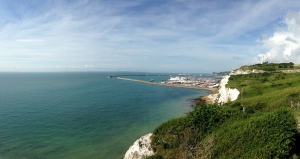
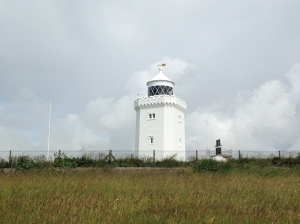

Unfortunately, or I suppose some people would say luckily, I didn’t have any time to sit and write anything. We had to continue to press on if we wanted to see most of it. We made it all the way to South Foreland Lighthouse, which was closed, and then decided to go back a different way than we came—on a gravel walking trail that went through several fields. It was a nice, peaceful walk, but we quickly realized that our “shortcut” was more like a “longcut” and we had to jump a few fences and walk some pretty narrow cliff edges to get us back to where we needed to be. Oh well, it just added to the experience.



We left Dover not long after lunch, and headed back to good ol’ Harlaxton. Only having a day and a half left in the manor house, we tried to make the most of it when we weren’t packing up our stuff. We spent a lot of time together as a group. I’m really going to miss us all being together. Everyone who went on the trip was a lot of fun to be around.
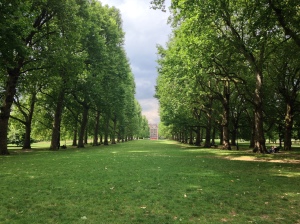


After saying our final goodbyes to home away from home, we left Harlaxton early Monday morning and headed for London. We were all pretty exhausted from all the travel we’d been doing, so our final trip to London was a lot more laid-back than the others. We did, however, do some shopping and visit Buckingham Palace. It wasn’t open to the public and we weren’t able to take obnoxious pictures with the guards, but we did get to get a good look at the palace through the gate. We went back to the hotel fairly early in the evening and spent the rest of the day chilling in our rooms.



We didn’t really do anything else until Tuesday evening when we went out to dinner together one last time at an Italian restaurant and then to the Globe to see Titus Andronicus. I didn’t really know what to expect. I mean, of course, I knew what the play was about since we’d discussed it in class, but I had no idea what to expect as far as the performance itself. All I can say is wow. The acting, effects, atmosphere, everything—absolutely brilliant. It made standing shoulder to shoulder with strangers in a large group of people for over three hours totally worth it. If I ever have the chance to see another play there, I’d go without hesitation. I’d only hope it’d be a less-bloody play, maybe a comedy, so I don’t have to worry about the person next to me fainting because of all the blood… Anyway, watching a Shakespeare play was a very fitting end to a literary study abroad trip.
Well, that’s about it, folks (as if I haven’t really typed too much.) I could talk about the joys of going through airport security and the flight home, but who wants to hear about that? I’ve already talked about all the interesting stuff. It’s kind of depressing—talking about England in past tense. It’s no longer what I’m experiencing, but what I’ve experienced. I could start throwing out all the cliché things people say to try and describe an amazing experience but I’m not going to do that. It wouldn’t do the trip or how I feel about it justice, and if you’re looking for clichés, I’m sure I’ve used enough of them in my posts. I’ll just say that I feel like a different person after that trip. It has changed the way I look at the world, the way I look at my future, the way I read books, and the way I notice things around me. Whether or not I ever have the opportunity to go back again, my time in England will always be invaluable and one of the greatest experiences of my life. If you ever the opportunity to go abroad, DO IT! I’d be happy to talk to anyone who has questions about it. You won’t regret it.





















































